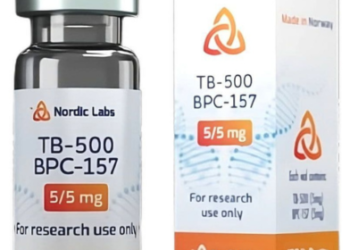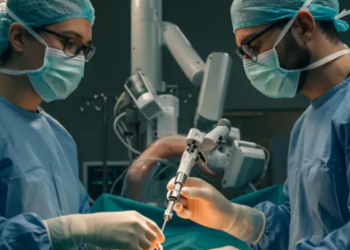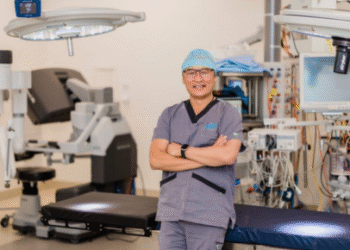Neuroscience is the branch of medicine that deals with the study and treatment of the brain, spinal cord, and nervous system. As one of the most complex systems in the human body, the nervous system is crucial for controlling a wide range of bodily functions, from movement and coordination to cognition and emotional regulation. Neuroscience specialists in Mysore are highly trained professionals who provide specialized care for individuals suffering from neurological disorders, helping them manage and overcome issues related to the brain and nervous system.
If you or someone you know is experiencing symptoms such as chronic headaches, dizziness, memory problems, or difficulty with movement, seeking the expertise of a neuroscience specialist in Mysore can be an essential step toward better health. In this article, we’ll explore what neuroscience specialists do, the common conditions they treat, and why Mysore is an excellent place to find top-tier neurological care.
What Do Neuroscience Specialists Do?
Neuroscience specialists, also known as neurologists, are medical professionals who specialize in diagnosing and treating conditions affecting the brain and nervous system. They use a combination of clinical evaluations, imaging studies, and laboratory tests to assess patients’ neurological health. These specialists are trained to manage a wide variety of neurological disorders, ranging from acute conditions like strokes and seizures to chronic illnesses such as Parkinson’s disease, multiple sclerosis, and Alzheimer’s disease.
A neuroscience specialist will typically conduct an initial consultation, which includes discussing symptoms, family history, and lifestyle factors. Depending on the symptoms, the neurologist may recommend additional tests such as:
- Magnetic Resonance Imaging (MRI): An MRI is a non-invasive imaging test that provides detailed pictures of the brain and spinal cord, helping to identify abnormalities like tumors, lesions, or swelling.
- Electroencephalogram (EEG): An EEG measures electrical activity in the brain and is often used to diagnose conditions like epilepsy or sleep disorders.
- CT Scan: A CT scan provides cross-sectional images of the brain and can help detect bleeding, brain injury, or other structural problems.
- Nerve Conduction Studies: This test measures the speed and strength of electrical signals traveling through the nerves, helping to diagnose nerve damage or diseases like neuropathy.
Once a diagnosis is made, neuroscience specialists in Mysore develop individualized treatment plans, which may include medications, physical therapy, lifestyle modifications, or surgery, depending on the condition.
Common Conditions Treated by Neuroscience Specialists
Neuroscience specialists in Mysore treat a wide range of neurological conditions, from acute to chronic. Some of the most common conditions they address include:
- Stroke: A stroke occurs when the blood supply to part of the brain is interrupted, causing brain cells to die. Symptoms can include sudden weakness, numbness, difficulty speaking, or loss of coordination. Neuroscience specialists are crucial in diagnosing and managing stroke patients, often with a combination of medication and rehabilitation therapies.
- Seizure Disorders: Conditions like epilepsy and other seizure disorders are treated by neuroscience specialists. These disorders are characterized by abnormal electrical activity in the brain, leading to episodes of convulsions or loss of consciousness. Treatment may include anticonvulsant medications and lifestyle modifications to reduce the frequency of seizures.
- Parkinson’s Disease: Parkinson’s disease is a progressive neurodegenerative disorder that affects movement, causing tremors, stiffness, and difficulty with balance. Neuroscience specialists help manage the symptoms of Parkinson’s disease with medications, therapy, and, in some cases, surgical interventions.
- Alzheimer’s Disease and Dementia: Alzheimer’s disease is a type of dementia that causes memory loss, confusion, and changes in behavior. Neuroscience specialists in Mysore work with patients and their families to provide a diagnosis and manage the symptoms through medication and cognitive therapies.
- Multiple Sclerosis (MS): MS is an autoimmune disease where the immune system attacks the protective covering of nerve fibers, leading to symptoms such as fatigue, weakness, and coordination problems. Neuroscience specialists can diagnose MS and recommend a treatment plan to slow disease progression.
- Headaches and Migraines: Chronic headaches and migraines can significantly impact a person’s quality of life. Neuroscience specialists use advanced diagnostic techniques to determine the underlying cause of these headaches and recommend effective treatments to manage the pain.
- Neuropathy: Neuropathy, or nerve damage, can result in numbness, tingling, and weakness, often in the extremities. This condition is commonly associated with diabetes but can also occur as a result of infections, autoimmune diseases, or certain medications.
- Spinal Disorders: Neuroscience specialists also treat conditions affecting the spinal cord, including herniated discs, spinal stenosis, and spinal cord injuries. Treatment may include physical therapy, pain management, or surgery.
Why Choose Neuroscience Specialists in Mysore?
Mysore is rapidly emerging as a hub for advanced healthcare services, including neurological care. The city boasts a variety of well-established hospitals and clinics with highly trained neuroscience specialists who are committed to providing comprehensive care to patients with neurological conditions.
Here are some reasons why Mysore is an excellent place to find expert neurological care:
- Highly Skilled Specialists: Mysore is home to experienced neurologists who have received specialized training in neuroscience, often from leading medical institutions. They are equipped with the latest knowledge and techniques to diagnose and treat neurological disorders.
- Advanced Diagnostic Tools: Neuroscience specialists in Mysore have access to state-of-the-art diagnostic equipment, such as MRI machines, EEGs, and CT scans, allowing them to accurately assess and diagnose neurological conditions.
- Holistic Care: Many neuroscience specialists in Mysore take a holistic approach to patient care, integrating medical treatments with rehabilitation, physical therapy, and lifestyle counseling. This comprehensive approach helps patients manage their conditions more effectively and improve their overall quality of life.
- Affordability: Compared to larger metropolitan cities, healthcare services in Mysore are often more affordable, without compromising on quality. This makes it an attractive option for individuals seeking high-quality neurological care at a more reasonable cost.
- Personalized Attention: Smaller cities like Mysore often provide more personalized care, allowing patients to build stronger relationships with their healthcare providers. This can lead to better communication and more effective treatment outcomes.
Conclusion
If you or a loved one is dealing with a neurological condition, seeking the expertise of a neuroscience specialist in Mysore is an excellent step toward better health. With a wide range of treatments available for conditions affecting the brain and nervous system, neuroscience specialists in Mysore provide compassionate, comprehensive care to help patients live their best lives. Whether you are seeking diagnosis, treatment, or ongoing management, Mysore offers access to some of the best neurological care in the region.










